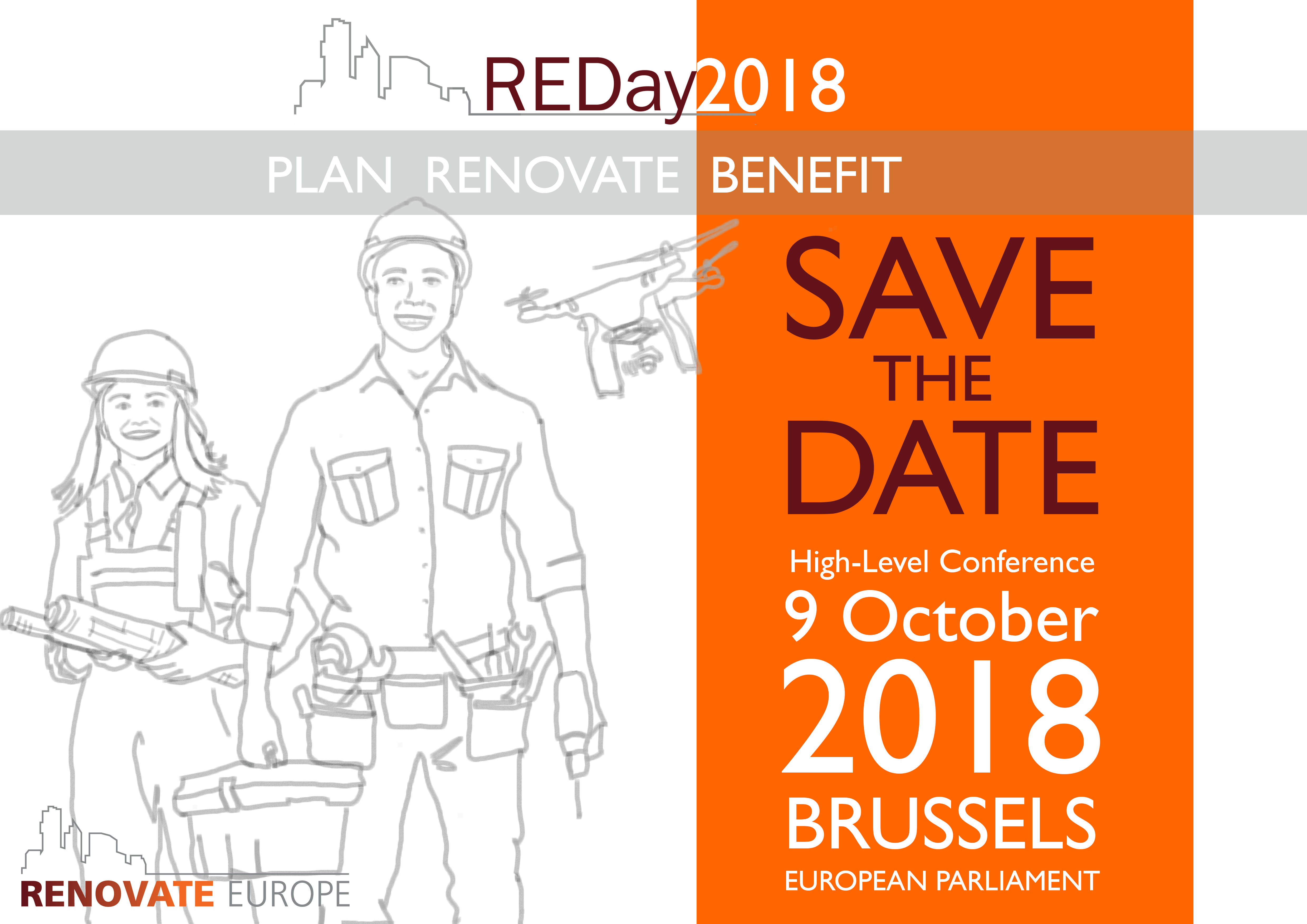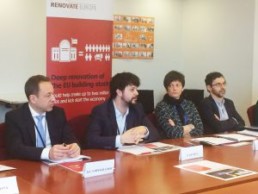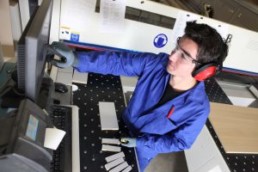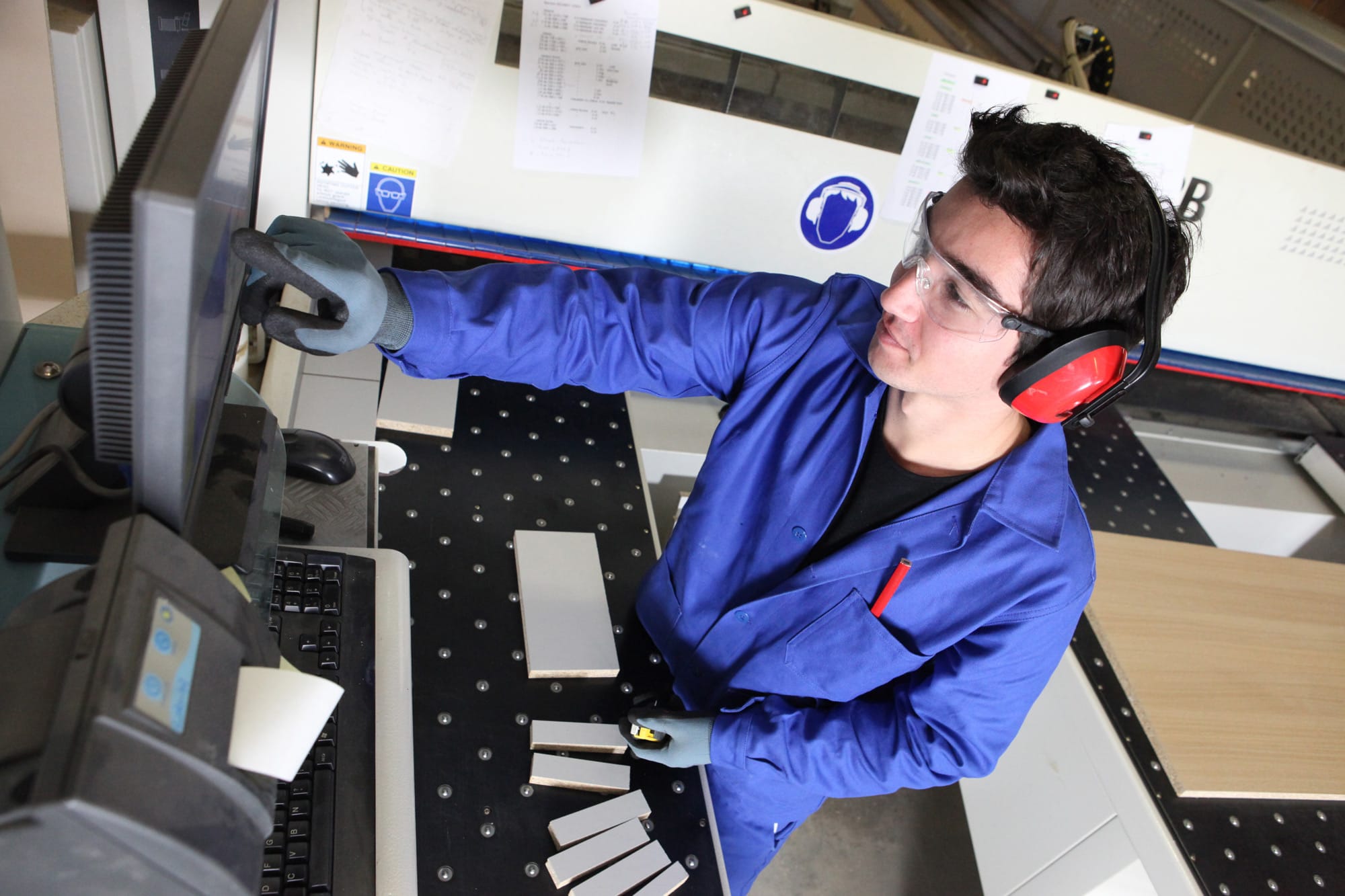REDay2018 9 October: Key Tools to Boost Energy Renovation
Key tools to boost energy renovation
The amended Energy Performance of Buildings Directive (EPBD) contains a vision for 2050 for the buildings stock in the EU – it will have to be highly energy efficient and decarbonised, reaching cost-effective nearly zero energy levels. As a result, it is time for action and the Member States will need to be armed with all the right tools and resources to achieve this challenging and necessary vision.
This year’s Renovate Europe event, to be held inside the European Parliament in Brussels, will look at how to plan properly for the achievement of this 2050 vision. We will have presentations from all levels of governance from the EU to the local, city level passing through the national and sub-national levels. Our invited audience will represent a cross-section of concerned stakeholders ready to assist the various levels of governance to play their part in the transformation of the building stock in the EU before 2050.
Digitalisation of Energy Renovation to boost Youth Employment
JOINT PRESS RELEASE
Brussels, 29th March 2018
“With an ageing workforce in the construction sector, and persistent youth unemployment across the EU, the digitalisation of the energy renovation sector is the ideal tool to address both issues, by creating a more attractive sector for the younger generation”, explained Adrian Joyce, Director of the Renovate Europe Campaign, speaking at a joint Renovate Europe – Youth Intergroup event on Wednesday 28th March in the European Parliament.
Indeed, as collaborative robots, drones, prefabricated materials (often involving 3D printing) and other automotive processes sweep through the energy renovation sector, the construction industry is rapidly shedding its traditional image of muscular manual workers battling tough weather outdoors, in favour of a digitalised, innovative and safer working environment.
“Digital solutions have the great potential to reach women and young people, nowadays underrepresented in the sector, by alleviating burdensome physical tasks and creating new high qualified jobs”, explains Eugenio Quintieri from the European Builders Confederation (EBC). “In order to exploit this potential, digitalisation needs to become massive. This will only be possible by developing digital solutions that are affordable, easy to access and that constitute a real added value to construction SMEs and craftsmen, that represent the vast majority of the sector”
The multiple benefits that will flow from such a transformation are undeniable, but there is a need to support this transformation to ensure that it is inclusive and entails enhanced collaboration across the value chain, highlighted Domenico Campogrande from the European Construction Industry Federation (FIEC).
MEP Brando Benifei, Vice-Chair of the Youth Intergroup and host of the joint event, was clear about the crucial role that the post-2020 MFF has to play to upskill our youth and support our SMEs so they can rise to the challenge and stand at the frontline of the digitalisation curve. He emphasised that “The European Parliament will be united in pushing for more support for SMEs and investing in the workforce. We've been pushing for structural funds, especially the European Social Fund to be used more specifically for digital literacy and [retraining for] new jobs”.
The European Commission’s DG Employment agreed that there is a huge potential in the post-2020 EU Budget to support the digitalisation of energy renovation in order to boost youth employment.
Fulvia Raffaelli from DG GROW reminded the audience that digitalisation is not an end in itself but has to be understood as a tool to reach a clear objective, in this case a highly energy efficient building stock which will boost employment, prosperity and wellbeing among EU citizens and businesses. She emphasised that “Construction has to be perceived as a process and renovation must be fully part of it”.
Renovate Italy, one of the national partners of the Campaign, was also present at the event, speaking about the direct market experience of one of its supporting companies, ‘Teicos’. It is an SME specialised in energy renovation, which is implementing an innovative business model based on digital management techniques for the construction process. It is proving to be highly attractive for young people and has helped the company to grow at a significantly faster rate than its more traditional competitors.
END
DOWNLOAD THE FULL PRESS RELEASE
@youthintergroup @RenovateEurope
Relevant documents:
Download the Poster and Agenda of the event
Download the one-page infographic on the topic: How can the Digitalisation of the EU Energy Renovation Sector boost Youth Employment?
Download the 6-page briefing on the topic: Digitalisation, Disruption and the Energy Renovation Sector
Download the PPT presentations: Joint event with the Youth Intergroup - 28th March
-------------------------------------------------------------------------------
About Renovate Europe
Renovate Europe is a political communications campaign with the ambition to reduce the energy demand of the building stock in the EU by 80% by 2050 compared to 2005 levels through legislation and ambitious renovation programmes. This will bring the energy performance of the entire building stock in the EU to a Nearly Zero Energy (NZEB) performance level. Renovate Europe brings together 36 partners from across the building value chain (trade associations, companies, trade unions, city networks and 14 national partners). Learn more: www.renovate-europe.eu @RenovateEurope
About the YOUTH Intergroup:
The YOUTH Intergroup is a cross-party grouping of over 120 Members of the European Parliament working together for better youth policies in Europe.
Joint Event with the YOUTH Intergroup - 28TH March
Youth Employment and the Digitalisation of the Energy Renovation Sector
PPT presentations from the event are available to download in the Agenda below
11:00 Welcoming Remarks by YOUTH Intergroup
MEP Brando Benifei, Vice-Chair of the Youth Intergroup
11:05 Introductory Remarks by Renovate Europe – How many jobs? Boosting youth employment
Adrian Joyce, Director of the Renovate Europe Campaign
Session I: Transformation of the Energy Renovation Sector – More digital, more youth?
Moderator: Adrian Joyce, Director of the Renovate Europe Campaign
11:10 The Construction Sector – Adapting to the Digital Times
Fulvia Raffaelli, DG GROW, Digital Construction, European Commission
11:20 Youth Involvement – Why the Energy Renovation Sector is becoming increasingly attractive
Domenico Campogrande, European Construction Industry Federation (FIEC)
11:30 HEART PROJECT: Ensuring High Energy Efficiency Standards are maintained in the Digitalisation Process
(Creating a retrofit toolkit with cloud based computing platform to transform existing building into highly energy efficient smart building)
Julien Dijol, Housing Europe as part of HEART PROJECT
11:40 Q&A
Session II: Digitalisation of the Energy Renovation Sector – Training Youth for the SMEs of Tomorrow
Moderator: Adrian Joyce, Director of the Renovate Europe Campaign
11:45 Putting SMEs and Youth at the Frontline of the Digitalisation Curve
Eugenio Quintieri, European Builders Confederation (EBC)
11:55 The Impact of Digitalization in Energy Renovation SMEs – Boosting Youth Employment in Italy
Cecilia Hugony, Renovate Italy
Maëva Roulette, DG EMPL, European Commission
12:15 Q&A
12:20 Closing Remarks
MEP Brando Benifei, Vice-Chair of the Youth Intergroup
Adrian Joyce, Director of the Renovate Europe Campaign
End of event
Briefing 1/2018: Digitalisation, Disruption and the Energy Renovation Sector
March 2018
Robots and the construction industry may not go together like a horse and carriage in parlour talk but, as digitalisation gathers pace, they look set to define Europe's building sites in the next century.
Working in the building industry has long been characterised as a physically exhausting and rather low paid activity that lacked innovative drivers, according to the European Builders Confederation (EBC), the organisation representing construction SMEs and craftsmen in Europe.
“We have a skills shortage, an ageing workforce and the fundamental problem that young people do not consider the sector attractive enough,” said Eugenio Quintieri, the confederation's Secretary General. “Construction is no longer a dusty sector where people just get their hands dirty. Digitalisation and the accompanying demand for higher-skilled workers will help to reach woman and young people, nowadays underrepresented in the sector.”
The wind of digitalization is sweeping through European construction sites. Let’s maximise the opportunities with the upcoming MFF negotiations to upskill our youth and support our SMEs – the EU must stand at the frontline of the global digitalization curve in the energy renovation sector to remain competitive.

Download the Renovate Europe Briefing 1/2018: Digitalisation, Disruption and the Energy Renovation Sector
Download the one-page infographic: How can the Digitalisation of the EU Energy Renovation Sector boost Youth Employment?
28th March: Event on Youth Employment and the Digitalisation of the Energy Renovation Sector
28th March 2018: Event on Youth Employment and the Digitalisation of the Energy Renovation Sector
Event jointly organised by the Youth Intergroup and Renovate Europe.
Hosted by MEP Brando Benifei (Italy, S&D)
Room A5G305, European Parliament, Brussels
Digitalisation is sweeping through the energy renovation sector, from collaborative robots and virtual reality modelling (BIM) to indoor prefabrication, drones & 3D printing.
- How can we address the widening gap between rising youth unemployment and an ageing construction sector through an increasingly attractive digitalised energy renovation sector?
- Which opportunities in the MFF can support SMEs and equip the next youth generation with the technical skills to face this challenge?
- What is the potential to improve working conditions, increase productivity, reduce construction costs and improve the energy efficiency of buildings?
Download the Poster and Agenda of the event
Download the one-page infographic on the topic: How can the Digitalisation of the EU Energy Renovation Sector boost Youth Employment?
Download the 6-page briefing on the topic: Digitalisation, Disruption and the Energy Renovation Sector
Energy Renovation – the Sharpest Arrow in the EU’s post-2020 Budget
15 March 2018
The adoption yesterday in the European Parliament of the Olbrycht-Thomas Own-Initiative Report has set a positive tone for future negotiations on the EU’s post-2020 Multi-Annual Financial Framework (MFF), which has the potential to significantly boost investments in energy renovations across the EU.
The EP’s call for climate-related funding to be raised to 30% in the next 7-year budgetary period acknowledges the rising expectations from EU citizens to deliver a people-centric budget in line with the Paris Agreement and the Energy Efficiency First principle.
“The energy renovation of Europe’s leaky buildings is the sharpest arrow in the EU’s budget to simultaneously tackle some of citizens’ most pressing concerns around CO2 emissions, but also unemployment, energy poverty, poor health, and urban regeneration”, explained Adrian Joyce, Director of the Renovate Europe Campaign.
“The EP is clearly aware that earmarking for energy efficiency and especially for energy renovation must continue in the post-2020 MFF, if EU citizens are to reap the multiple benefits that flow from achieving a highly energy efficient nearly Zero Energy Building (NZEB) level building stock by 2050”.
The European Commission’s first proposal for the post-2020 MFF is expected in May, taking into account the EP’s report as well as responses received in the online public consultation earlier in March.
In its response to the Commission’s public consultation, Renovate Europe also suggested linking the EU budget better to Member State’s commitments in the Energy Performance of Buildings Directive (EPBD).
Indeed, allowing MFF funding to be directly used to implement the EPBD’s National Long-term Renovation Strategies in Member States would be an effective means of demonstrating the tangible benefits that EU policies and funding can deliver to citizens on the ground.
Increasing energy renovation training opportunities for youth and SMEs in the next MFF, namely in the European Social Fund, will also be essential to support the establishment of the green economy and prepare our local workforce for tomorrow’s digitalized labour market.
*******
Read more about how Energy renovation could become one of the biggest success stories of the next EU budget.
Read Renovate Europe’s response to the European Commission’s Public Consultation on the post-2020 MFF
END












